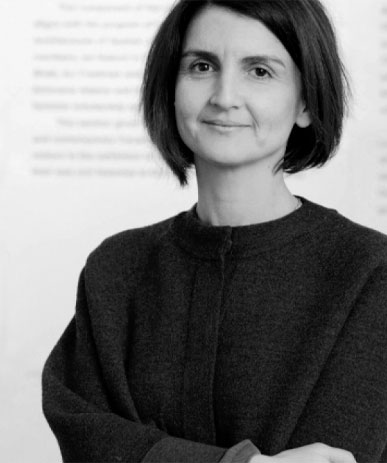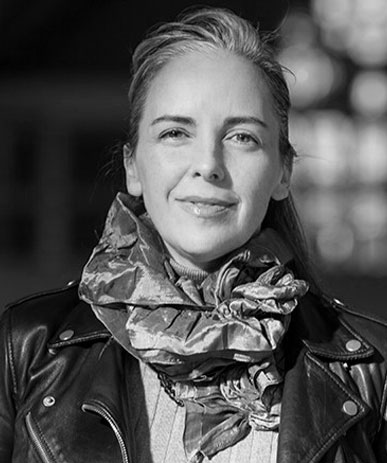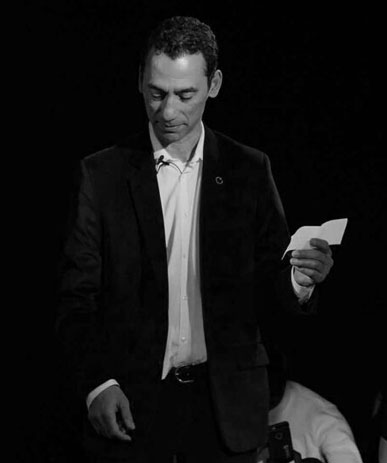CASOS DE ESTUDIO
JUSTICIA RESTAURATIVA
* Para referencias de imágenes, desplácese hasta la parte inferior de la página.
Author of case study: Marcela Torres Molano
Geopolitical location of space:
Various regions of Colombia
Extant?
Yes
Architect:
Architect unknown
Start date: 2012
End date: ongoing
The Mobile Unit is a space for the initial stages of transitional justice. The unit is a space that provides services to different Colombian regions and territories such as information dissemination, legal orientation, receiving declarations of war crimes, and training and support of transitional justice processes.
Yes, the unit has been deployed in the initial stages of transitional justice in Colombia. It allows for the gathering of testimonies in regions of difficult access and provides legal orientation to victims, enabling their integration into the transitional justice system. Encounters between victims and perpetrators living in remote areas can be organised in different community spaces such as the public spaces where the mobile unit is usually located.
The unit is designed for mobility purposes. Spaces for individual consultation can take place inside the unit and in the outdoor extension adjacent to the unit. Meeting tables are placed outside the unit with enough distance between them to safeguard the privacy of the community members in attendance.
General population of urban and rural towns lacking in spaces for the attention of victims and/or transitional justice centres.
The unit occupies public space when visiting a town. As such, it is accessible to all members of the community it visits.
The Mobile Unit houses six office spaces and has a total area of 30 square metres when using the whole extension of the vehicle (this does not include the occupation of public space or the use of an inflatable structure in spaces adjacent to the parked unit). The space was designed to overcome geographic barriers and enable the decentralisation of transitional justice services. The main purpose of the space is to include victims from all regions of Colombia in an integrative and restorative justice process.
The unit includes work spaces inside the vehicle, as well as temporal tents and furniture to be located outdoors. The space can be arranged in different ways, adapted to different geographic environments and weather conditions. For instance, the tents are located away from the vehicle when the public space offers some protection from the elements, and they are located next to the vehicle when services are provided in a completely open or unprotected space.
The Mobile Unit started working in 2012, and has visited numerous territories across Colombia. By 2020 it had provided services to more than 122.000 victims of the conflict, including populations belonging to constitutionally protected ethnic groups (Indigenous and Rom people, Raizal communities of the Archipelago of San Andres and Providencia, and Afro-Colombian and Palenquero communities).
Among other functions, the unit is a space that provides information and legal guidance on the mechanisms of transitional justice, as well as training for individuals and public servants in truth telling, reparation, and non-repetition mechanisms. The training sessions include instruction on how to protect and participate in transitional justice processes, and briefing on the Special Jurisdiction for Peace and the Colombian Truth Commission reports.
The Mobile Unit serves to decentralise services from the Special Jurisdiction for Peace (JEP), the Truth Commission, and the Unit for the Search for Persons Presumed Disappeared (UBPD). Its customised mobile spaces allow communities from different regions, races, socio-economic classes, and backgrounds to access transitional justice services.

es autora, conferencista, columnista y podcaster en los campos de la arquitectura y las artes decorativas. Obtuvo su un pregrado en Comercio con especialización en Marketing de la Escuela de Negocios John Molson y actualmente se encuentra realizando su maestría en Historia del Arte en la Universidad de Concordia, Montreal. Además, estudió Psicología Industrial en Los Ángeles, California y es autora de dos libros sobre diseño (2015, 2018) publicados por Les Éditions Cardinal.

es colombiana, candidata a doctorado en el Departamento de Historia del Arte de la Universidad Concordia. Tiene experiencia en diseño arquitectónico y activismo comunitario y es maestra en Construcción y Diseño Urbano de la Escuela de Arquitectura Bartlett, Londres, Inglaterra. Sus intereses se centran en el arte y movimientos sociales, el activismo colaborativo en escenarios de posconflicto, el arte colectivo y el arte producido en relación con el entorno construido.

es candidato a doctorado en Humanidades de la Universidad de Concordia, enfocado en la agencia espacial, la estética social, las narrativas juveniles y las representaciones gráficas de la memoria urbana. Ha publicado sobre la relación entre los niños, el juego y el espacio público en Cartagena, Colombia. También ha trabajado como editor en proyectos literarios, entre ellos Territorio Fértil, que recibió el premio María Nelly Murillo Hinestroza de literatura afrocolombiana.

es profesora asociada y Catedrática de investigación de Canadá para la arquitectura de espacios de Justicia (Tier 2) en la Escuela de arquitectura Peter Guo-hua Fu de la Universidad de McGill University, Montréal, Canada. Se enfoca en la investigación de viviendas en entornos de bajos ingresos, diseño participativo, protesta civil, diseño urbano y paisajes y razas. Sus publicaciones incluyen el libro co-editado, Orienting Istanbul (2010) y el libro individual, Istanbul Open City (2018).

es una artista y profesora asociada y Catedrática de investigación de Canadá para la arquitectura de espacios de Justicia (Tier 2) en la Escuela de arquitectura Peter Guo-hua Fu de la Universidad de McGill University, Montréal, Canada. Se enfoca en la investigación de viviendas en entornos de bajos ingresos, diseño participativo, protesta civil, diseño urbano y paisajes y razas. Sus publicaciones incluyen el libro co-editado, Orienting Istanbul (2010) y el libro individual, Istanbul Open City (2018).

es el antiguo catedrático de Canadá en Historia Oral y performance (2016-2021), es profesor asociado al departamento de Teatro de la Universidad de Concordia y es codirector del Centro de Historia Oral e Historia digital (COHDS). Por medio de la financiación de Canada Foundation for Innovation, creo en 2018 el Laboratorio de actos de escucha , un centro líder de investigación y creación para el poder transformador de escuchar.